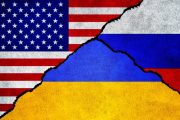Under the guise of battling the Islamic State (ISIS) and jihadists on the Internet, the European Union’s self-styled “police” force, dubbed “Europol,” is launching a new bureaucracy to supposedly combat “online propaganda” and “extremism” with censorship. The so-called EU “Internet Referral Unit” (IRU) will be charged with monitoring the World Wide Web, taking down and flagging “extremist” material, providing information and analysis to EU member governments, and looking forward to the future. While details of the unit remain hazy, critics are expressing concerns — both about the EU usurpation of the awesome power to unilaterally censor the Internet, and with the constantly changing definition of “extremism” to cover increasingly broad swaths of the population.
The controversial EU censorship “unit” was formally born on July 1 to “combat terrorist propaganda and related violent extremist activities on the internet,” Europol said in a press release without defining “terrorist,” “propaganda,” or “extremist activities.” The announcement justified the censorship bureaucracy by claiming that “terrorists” have increased their use of the Internet and social media in recent years, and that “jihadist groups, in particular,” apparently have a “very sophisticated understanding” of social networks. “They have launched well-organized, concerted social media campaigns to recruit followers and to promote or glorify acts of terrorism or violent extremism,” the announcement claimed, ignoring the official documents exposing Western governments’ brazen support for jihad in Syria.
To deal with the jihadists who were armed and trained by Western governments and their allies among Middle Eastern despots to overthrow Syrian dictator Bashar al-Assad, the EU decided to implement what it described as a “coherent and coordinated European prevention approach.” So, using the same process used to foist the unpopular EU super-state on the peoples of Europe, high-ranking but unelected so-called “eurocrats” decreed the establishment of the Europol censorship unit. “The European Union Internet Referral Unit at Europol will identify and refer relevant online content towards concerned internet service providers and support Member States with operational and strategic analysis,” the announcement said.
Multiple EU bigwigs and commissars were quoted celebrating the creation of their new censorship unit and praising its importance. “The recent terrorist attacks in France, Tunisia and Kuwait have shown once again how important it is to combat terrorist threats with determination,” declared Dimitris Avramopoulos, the EU commissar for “Home Affairs.” “The establishment of the EU Internet Referral Unit is one of the first deliverables of the European Agenda on Security. It will provide operational support to Member States on how to tackle more effectively the challenges of detecting and removing the increasing volume of terrorist material on the internet and in social media. The launch of this important initiative is the result of our common efforts. The success of this initiative will depend on the continued good cooperation and contributions from all stakeholders.”
In a speech delivered last week in Luxembourg, Commissar Avramopoulos boasted that Europol already oversees “effective operations” to fight criminals. Last month, he bragged, Europol’s “European Cybercrime Centre” (EC3) and “Eurojust” supposedly dismantled a group of cybercriminals working across six countries, resulting in almost 50 arrests. He also told attendees about the new IRU, launched the week prior, that would be “identifying and removing” unapproved material online. But it will not be enough to have the EU’s bureaucracies and member governments onboard. “It is also essential to have strong public-private cooperation in the field of security,” he said, adding that the EU would be establishing an “Internet Forum” bringing together EU governments and private-sector Internet companies. “The aim is to reduce the accessibility of online terrorist material and to counter the terrorist narrative and propaganda.”
According to EU “Home Affairs” Commissioner Avramopoulos, workshops and meetings are already taking place. He also dropped a cryptic note suggesting at least some U.S. links to the scheme. “I am planning to travel to California in September with the aim of preparing the launch of the Forum in December,” he said. But why would travel to California be required to prepare an “Internet Forum” for censoring the Web in Europe? “We have to make sure that important actors from the industry will do their fair share to protect citizens and make the Internet a safer place,” he explained. Presumably, the commissar’s trip to the Golden State will aim to prod California-based Internet giants such as Facebook, Google, Twitter, and others into joining the censorship jihad. Based on those companies’ willing cooperation with the increasingly Orwellian U.S. government surveillance regime, it is unlikely that any of the firms will put up much resistance to being conscripted by the EU, either.
In typical globalist fashion, Avramopoulos also tried to justify his bureaucracy’s transnational censorship scheming by claiming that online propaganda is too serious to be dealt with by subservient national governments. And so, it must be dealt with by regional or even global authorities, far beyond the reach of pesky voters who might not approve of censorship. “The challenges we face today go well beyond the response capacities of any single Member State,” the commissar declared. “So, we have no other choice. We must work together. We must cooperate. Effective cooperation between the Member States, the EU institutions and the EU agencies is the key to improve Europe’s security.” Again, as when voters were defied by eurocrats to impose the EU “Constitution” and other schemes, Europeans have “no other choice” but to surrender more sovereignty and liberty to the EU.
Other EU bureaucrats were equally enthusiastic about getting to work censoring the Web under the guise of fighting a terror war. EU “Counter Terrorism Coordinator” Gilles de Kerchove, for example, claimed that “the terrorist groups which challenge our security are exploiting the internet and social media to promote their cause and to secure new recruits.” He said a “coordinated” EU response to online propaganda was “vital,” and that by coaxing industry to participate, the power-hungry super-state would make a “key contribution” to reducing the amount of “terrorist material” available online. Europol boss Rob Wainwright, meanwhile, explicitly noted that the scheming was aimed at taking down “extremist online propaganda” — again with no definition of “extremist” or “propaganda.” With its partners in the private sector, Wainwright added in Orwellian fashion, the EU will deliver a “determined response to this problem affecting the safety and liberty of the internet.” It was not immediately clear how censorship would contribute to either the safety or the liberty of the Internet.
According to the official announcement, the European police agency’s new capability will rely on existing relationships with law enforcement across the EU and beyond. It will also demand the obedience of the private sector, with Internet Service Providers and social-media firms in particular expected to censor online material when ordered to do so by EU bureaucrats. It was not immediately clear who would be providing oversight of the new outfit, or even if there would be any semblance of checks and balances to ensure accountability of the new censorship regime and its legions of bureaucrats. Also unclear is how much taxpayer money would be spent attempting to censor the Web. Presumably, though, it will not be as much as European powers, the Obama administration, and various Sunni Islamist dictators spent fomenting jihad in Syria, Libya, and beyond.
The press release did say, however, that the scheme would rely on “available secure communication channels and databases, as well as Europol’s unique, robust data protection and confidentiality arrangements.” Some 15 Europol bureaucrats and “experts” from the EU will form the unit initially, but the number and capabilities will grow over the coming year, culminating in what Europol described as “full maturity” by July of 2016. How many bureaucrats will work to censor the net once “full maturity” is reached was also not clear. “The full impact of the IRU, however, will be delivered by leveraging the combined resources of social media partners and national expert contact points due to be established in all Member States, working as a concerted community through the EU IRU at Europol,” the official announcement declared.
The censorship apparatus will also be forward looking, according to an EU “concept” paper about the schemes released earlier this year by Europol. “To be successful in such a rapidly evolving environment the EU IRU should not be confined to playing a ‘whack-a-mole’ game with terrorists,” the document argued. “It should look beyond current challenges, towards future developments and emerging social media trends and resources.” Noting that social-media services provide “valuable intelligence” to the EU bureaucracy, the document also calls for the new censorship unit to “build upon Europol’s existing relations with the Internet industry to act as a central European platform representing the European law enforcement interests.”
More than a few formerly sovereign European national governments ensnared in the perpetually expanding, liberty-crushing super-state have already launched similar censorship schemes domestically. In France, for example, authorities, like jihadists, have been fiendishly pursuing anyone who is accused of “illegal” speech, such as criticizing Islam. Criticizing homosexuality and immigration or exhibiting racism also constitutes “crime” across much of Europe. The Spanish government, which is also pushing for a UN “terror” court, recently banned the use of social media to call for protests in what numerous analysts said was a package turning Spain into a “police state.” Also included among the measures was a ban on joking about the royal family. Of course, in many EU countries, even speaking the truth is against the law if the truth happens to run afoul of the myriad restrictions on speech. The EU itself even recently considered banning criticism of feminism under the guise of promoting “tolerance.” It also funds homosexual activists with links to pedophile groups.
The U.K. government, though, has been at the leading edge of the war against “extremism” — even “non-violent extremism” — from cyberspace and the classroom to the United Nations General Assembly. Already, authorities arrest street preachers who quote the Bible about homosexuality, politicians who quote Winston Churchill (when the quote is deemed hate speech), and people who post “insulting” comments on social media. This month, the education minister announced a plan to force teachers to report even children who disapprove of homosexuality to police and social services under the guise of fighting “extremism.” Before that, Prime Minister David Cameron called on the UN to help wage a global jihad on “non-violent extremism.” Among the examples of proscribed non-violent extremism were belief in unapproved conspiracy theories and religious prophecies.
Last month, the disgraced U.K. “intelligence” apparatus was exposed in leaked documents operating a vast army of government trolls paid to spew pro-government propaganda on social media. Based on behavioral science, the trolls engage in psychological operations, even against “domestic extremists” such as anti-immigration protesters, while pushing conformity and obedience online. Indeed, the EU’s censorship regime is reportedly based on the U.K.’s so-called Counter Terrorism Internet Referral Unit (CTIRU), which operates much like the EU IRU will in terms of censoring the Internet. As constitutional attorney Joe Wolverton reported on July 13 in The New American, Congress is also now working on a bill that would purport to conscript social-media companies in the “Terror War.”
Some critics, though, are fighting back, warning that giving governments and self-styled regional authorities the power to censor the Internet has very troubling implications. “Beyond the technical issues, trying to legislate ideas out of existence is a fool’s game: those sufficiently determined will always find ways to make themselves heard,” noted investigative journalist Glenn Greenwald, who helped expose much of the unconstitutional NSA surveillance. “But the comical futility of these efforts is exceeded by their profound dangers. Who wants governments to be able to unilaterally block websites? Isn’t the exercise of this website-blocking power what has long been cited as reasons we should regard the Bad Countries — such as China and Iran — as tyrannies (which also usually cite ‘counterterrorism’ to justify their censorship efforts)?”
Greenwald, who now writes for The Intercept, also pointed out that nebulous and undefined terms such as “extremism” and “radicalizing” are vague and elastic. “And in the hands of those who wield power, [the definitions] almost always expand far beyond what you think it should mean (plotting to blow up innocent people) to mean: anyone who disseminates ideas that are threatening to the exercise of our power,” he explained. “That’s why powers justified in the name of combating ‘radicalism’ or ‘extremism’ are invariably — not often or usually, but invariably — applied to activists, dissidents, protesters and those who challenge prevailing orthodoxies and power centers. In sum, far more damage has been inflicted historically by efforts to censor and criminalize political ideas than by the kind of ‘terrorism’ these governments are invoking to justify these censorship powers.”
“And whatever else may be true, few things are more inimical to, or threatening of, Internet freedom than allowing functionaries inside governments to unilaterally block websites from functioning on the ground that the ideas those sites advocate are objectionable or ‘dangerous,” Greenwald concluded. “That’s every bit as true when the censors are in Paris, London, and Ottawa, and Washington as when they are in Tehran, Moscow or Beijing.”
As the supposed war on “extremism” becomes increasingly extreme, the peoples of Europe and the United States must take action to preserve fundamental liberties such as the right to free speech, a free press, and Internet freedom. Unfortunately for Europeans, with the emergence of the out-of-control super-state in Brussels, trying to rein in the extreme assaults on freedom has become virtually impossible, as voters and citizens have no real way to control or hold accountable the armies of eurocrats usurping more and more power. For Americans, though, simply returning to the principles contained in the U.S. Constitution would be more than enough to quash the threat. Now would be a good time to get started — at least if the God-given rights enshrined in the first 10 amendments to the Constitution are going to be protected for future generations.
Alex Newman, a foreign correspondent for The New American, is currently based in Europe. He can be reached at [email protected]. Follow him on Twitter @ALEXNEWMAN_JOU.
Related articles:
New Bill Would Make Social Media Sites Flag Posts From “Terrorists”
The EU: Regionalization Trumps Sovereignty
Government Uses Psy-ops, Trolls, Propaganda to Push “Conformity”
U.K. Launches War on “Non-Violent Extremism,” Seeking UN Help
Obama’s Extremism Summit Promoted Big Government Extremism
Citing EU, Italy Orders Journalists to Promote Homosexual Agenda
Mass Arrests in Crackdown on Free Speech in Socialist France
On Free Speech, UN and French Rulers Side With Jihadists
UN Seeks to Criminalize Free Speech, Citing “Human Rights”
Hate Speech: U.K. Political Leader Arrested for Quoting Winston Churchill
In U.K., Freedom of Speech and Press Hang in the Balance
ISIS: The Best Terror Threat U.S. Tax Money Can Buy
U.S. Intel: Obama Coalition Supported Islamic State in Syria
EU Mandates Tracking Devices on European Cars; Nations Powerless
Obama’s Internet ID Plot Being Tested in Two States
Chinese Communist to Lead UN Agency Seeking to Control Internet
EU in Final Phase of Destroying Democracy, Czech President Warns




